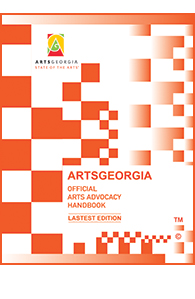Georgia Open Meetings Act
GEORGIA CODE Copyright 2007 by The State of Georgia
TITLE 50. STATE GOVERNMENT
CHAPTER 14. OPEN AND PUBLIC MEETINGS
§ 50-14-1. Meetings to be open to public; limitation on action to contest agency action; recording; notice of time and place; access to minutes; telecommunications conferences
(a) As used in this chapter, the term:
(1) “Agency” means:
(A) Every state department, agency, board, bureau, commission, public corporation, and authority;
(B) Every county, municipal corporation, school district, or other political subdivision of this state;
(C) Every department, agency, board, bureau, commission, authority, or similar body of each such county, municipal corporation, or other political subdivision of the state;
(D) Every city, county, regional, or other authority established pursuant to the laws of this state; and
(E) Any nonprofit organization to which there is a direct allocation of tax funds made by the governing authority of any agency as defined in this paragraph and which allocation constitutes more than 33 1/3 percent of the funds from all sources of such organization; provided, however, this subparagraph shall not include hospitals, nursing homes, dispensers of pharmaceutical products, or any other type organization, person, or firm furnishing medical or health services to a citizen for which they receive reimbursement from the state whether directly or indirectly; nor shall this term include a sub agency or affiliate of such a nonprofit organization from or through which the allocation of tax funds is made.
(2) “Meeting” means the gathering of a quorum of the members of the governing body of an agency or of any committee of its members created by such governing body, whether standing or special, pursuant to schedule, call, or notice of or from such governing body or committee or an authorized member, at a designated time and place at which any public matter, official business, or policy of the agency is to be discussed or presented or at which official action is to be taken or, in the case of a committee, recommendations on any public matter, official business, or policy to the governing body are to be formulated, presented, or discussed. The assembling together of a quorum of the members of a governing body or committee for the purpose of making inspections of physical facilities under the jurisdiction of such agency or for the purposes of meeting with the governing bodies, officers, agents, or employees of other agencies at places outside the geographical jurisdiction of an agency and at which no final official action is to be taken shall not be deemed a “meeting.”
(b) Except as otherwise provided by law, all meetings as defined in subsection (a) of this Code section shall be open to the public. Any resolution, rule, regulation, ordinance, or other official action of an agency adopted, taken, or made at a meeting which is not open to the public as required by this chapter shall not be binding. Any action contesting a resolution, rule, regulation, ordinance, or other formal action of an agency based on an alleged violation of this provision must be commenced within 90 days of the date such contested action was taken, provided that any action under this chapter contesting a zoning decision of a local governing authority shall be commenced within the time allowed by law for appeal of such zoning decision.
(c) The public at all times shall be afforded access to meetings declared open to the public pursuant to subsection (b) of this Code section. Visual, sound, and visual and sound recording during open meetings shall be permitted.
(d) Every agency shall prescribe the time, place, and dates of regular meetings of the agency. Such information shall be available to the general public and a notice containing such information shall be posted and maintained in a conspicuous place available to the public at the regular meeting place of the agency. Meetings shall be held in accordance with a regular schedule, but nothing in this subsection shall preclude an agency from canceling or postponing any regularly scheduled meeting. Whenever any meeting required to be open to the public is to be held at a time or place other than at the time and place prescribed for regular meetings, the agency shall give due notice thereof. “Due notice” shall be the posting of a written notice for at least 24 hours at the place of regular meetings and giving of written or oral notice at least 24 hours in advance of the meeting to the legal organ in which notices of sheriff’s sales are published in the county where regular meetings are held or at the option of the agency to a newspaper having a general circulation in said county at least equal to that of the legal organ; provided, however, that in counties where the legal organ is published less often than four times weekly “due notice” shall be the posting of a written notice for at least 24 hours at the place of regular meetings and, upon written request from any local broadcast or print media outlet whose place of business and physical facilities are located in the county, notice by telephone or facsimile to that requesting media outlet at least 24 hours in advance of the called meeting. When special circumstances occur and are so declared by an agency, that agency may hold a meeting with less than 24 hours’ notice upon giving such notice of the meeting and subjects expected to be considered at the meeting as is reasonable under the circumstances including notice to said county legal organ or a newspaper having a general circulation in the county at least equal to that of the legal organ, in which event the reason for holding the meeting within 24 hours and the nature of the notice shall be recorded in the minutes. Whenever notice is given to a legal organ or other newspaper, that publication shall immediately make the information available upon inquiry to any member of the public. Any oral notice required or permitted by this subsection may be given by telephone.
(e)(1) Prior to any meeting, the agency holding such meeting shall make available an agenda of all matters expected to come before the agency at such meeting. The agenda shall be available upon request and shall be posted at the meeting site, as far in advance of the meeting as reasonably possible, but shall not be required to be available more than two weeks prior to the meeting and shall be posted, at a minimum, at some time during the two-week period immediately prior to the meeting. Failure to include on the agenda an item which becomes necessary to address during the course of a meeting shall not preclude considering and acting upon such item.
(2) A summary of the subjects acted on and those members present at a meeting of any agency shall be written and made available to the public for inspection within two business days of the adjournment of a meeting of any agency. The minutes of a meeting of any agency shall be promptly recorded and such records shall be open to public inspection once approved as official by the agency, but in no case later than immediately following the next regular meeting of the agency; provided, however, nothing contained in this chapter shall prohibit the earlier release of minutes, whether approved by the agency or not. Said minutes shall, as a minimum, include the names of the members present at the meeting, a description of each motion or other proposal made, and a record of all votes. In the case of a roll-call vote the name of each person voting for or against a proposal shall be recorded and in all other cases it shall be presumed that the action taken was approved by each person in attendance unless the minutes reflect the name of the persons voting against the proposal or abstaining.
(f) An agency with state-wide jurisdiction shall be authorized to conduct meetings by telecommunications conference, provided that any such meeting is conducted in compliance with this chapter.
§ 50-14-2. Certain privileges not repealed
This chapter shall not be construed so as to repeal in any way:
(1) The attorney-client privilege recognized by state law to the extent that a meeting otherwise required to be open to the public under this chapter may be closed in order to consult and meet with legal counsel pertaining to pending or potential litigation, settlement, claims, administrative proceedings, or other judicial actions brought or to be brought by or against the agency or any officer or employee or in which the agency or any officer or employee may be directly involved; provided, however, the meeting may not be closed for advice or consultation on whether to close a meeting; and
(2) Those tax matters which are otherwise made confidential by state law.
§ 50-14-3. Excluded proceedings
This chapter shall not apply to the following:
(1) Staff meetings held for investigative purposes under duties or responsibilities imposed by law;
(2) The deliberations and voting of the State Board of Pardons and Paroles; and in addition said board may close a meeting held for the purpose of receiving information or evidence for or against clemency or in revocation proceedings if it determines that the receipt of such information or evidence in open meeting would present a substantial risk of harm or injury to a witness;
(3) Meetings of the Georgia Bureau of Investigation or any other law enforcement agency in the state, including grand jury meetings;
(4) Meetings when any agency is discussing the future acquisition of real estate, except that such meetings shall be subject to the requirements of this chapter for the giving of the notice of such a meeting to the public and preparing the minutes of such a meeting; provided, however, the disclosure of such portions of the minutes as would identify real estate to be acquired may be delayed until such time as the acquisition of the real estate has been completed, terminated, or abandoned or court proceedings with respect thereto initiated;
(5) Meetings of the governing authority of a public hospital or any committee thereof when discussing the granting, restriction, or revocation of staff privileges or the granting of abortions under state or federal law;
(6) Meetings when discussing or deliberating upon the appointment, employment, compensation, hiring, disciplinary action or dismissal, or periodic evaluation or rating of a public officer or employee but not when receiving evidence or hearing argument on charges filed to determine disciplinary action or dismissal of a public officer or employee. The vote on any matter covered by this paragraph shall be taken in public and minutes of the meeting as provided in this chapter shall be made available. Meetings by an agency to discuss or take action on the filling of a vacancy in the membership of the agency itself shall at all times be open to the public as provided in this chapter;
(7) Adoptions and proceedings related thereto;
(8) Meetings of the board of trustees or the investment committee of any public retirement system created by Title 47 when such board or committee is discussing matters pertaining to investment securities trading or investment portfolio positions and composition; and
(9) Meetings when discussing any records that are exempt from public inspection or disclosure pursuant to paragraph (15) of subsection (a) of Code Section 50-18-72, when discussing any information a record of which would be exempt from public inspection or disclosure under said paragraph, or when reviewing or discussing any security plan under consideration pursuant to paragraph (10) of subsection (a) of Code Section 15-16-10.
§ 50-14-4. Procedure when meeting closed
(a) When any meeting of an agency is closed to the public pursuant to any provision of this chapter, the specific reasons for such closure shall be entered upon the official minutes, the meeting shall not be closed to the public except by a majority vote of a quorum present for the meeting, the minutes shall reflect the names of the members present and the names of those voting for closure, and that part of the minutes shall be made available to the public as any other minutes. Where a meeting of an agency is devoted in part to matters within the exceptions provided by law, any portion of the meeting not subject to any such exception, privilege, or confidentiality shall be open to the public, and the minutes of such portions not subject to any such exception shall be taken, recorded, and open to public inspection as provided in subsection (e) of Code Section 50-14-1.
(b) When any meeting of an agency is closed to the public pursuant to subsection (a) of this Code section, the chairperson or other person presiding over such meeting shall execute and file with the official minutes of the meeting a notarized affidavit stating under oath that the subject matter of the meeting or the closed portion thereof was devoted to matters within the exceptions provided by law and identifying the specific relevant exception.
§ 50-14-5. Jurisdiction to enforce chapter
(a) The superior courts of this state shall have jurisdiction to enforce compliance with the provisions of this chapter, including the power to grant injunctions or other equitable relief. In addition to any action that may be brought by any person, firm, corporation, or other entity, the Attorney General shall have authority to bring enforcement actions, either civil or criminal, in his or her discretion as may be appropriate to enforce compliance with this chapter.
(b) In any action brought to enforce the provisions of this chapter in which the court determines that an agency acted without substantial justification in not complying with this chapter, the court shall, unless it finds that special circumstances exist, assess in favor of the complaining party reasonable attorney’s fees and other litigation costs reasonably incurred. Whether the position of the complaining party was substantially justified shall be determined on the basis of the record as a whole which is made in the proceeding for which fees and other expenses are sought.
(c) Any agency or person who provides access to information in good faith reliance on the requirements of this chapter shall not be liable in any action on account of having provided access to such information.
§ 50-14-6. Violation of chapter; penalty
Any person knowingly and willfully conducting or participating in a meeting in violation of this chapter shall be guilty of a misdemeanor and upon conviction shall be punished by a fine not to exceed $500.00.











